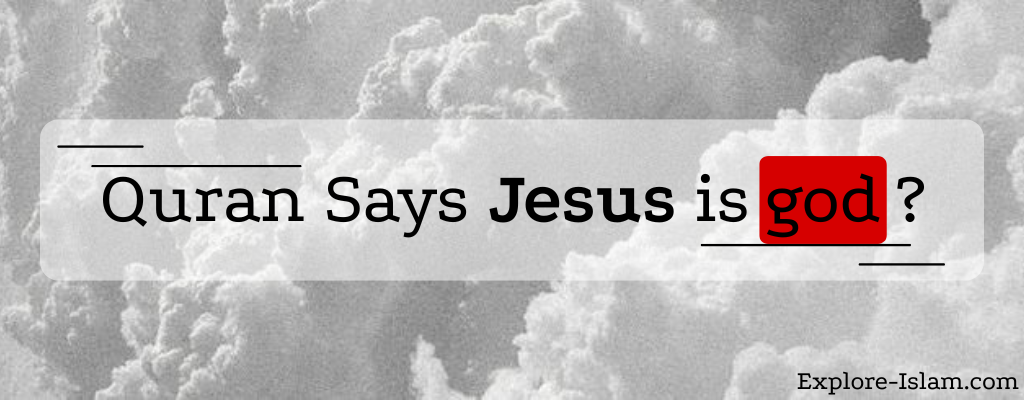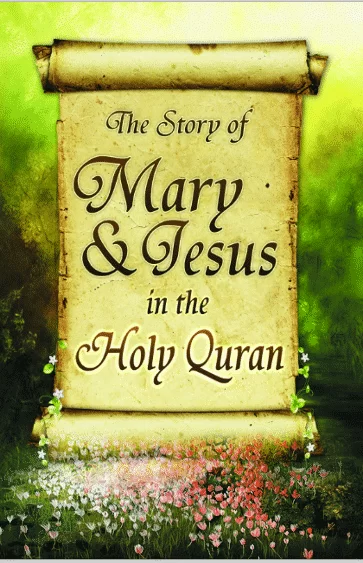The Quran provides detailed insight into the miraculous creation of Jesus, son of Mary (peace be upon him), describing him as “the Word of God” (كلمة الله) in several verses. This phrase highlights the unique way Jesus was brought into existence, emphasizing Allah’s power and wisdom. This article explores the meaning behind this title and explains why Jesus was a servant of Allah, not divine.
What Is The Meaning Of “Jesus As Word Of God” In The Quran?
The Quran describes Jesus, son of Mary, as
“the Word of God,” emphasizing his miraculous creation by Allah’s command “Be” (كن): “When He [God] decrees a matter, He only says to it, ‘Be,’ and it is.”
(Quran 3:47).
Unlike other humans born through the union of a father and mother, Jesus was conceived miraculously. Allah sent the angel Gabriel to Mary, who conveyed Allah’s word and breathed into her by His command, resulting in her conceiving Jesus.
Islam firmly rejects the idea of Jesus being divine or the son of God. The Quran emphasizes:
“It is not [befitting] for Allah to take a son; exalted is He! When He decrees an affair, He only says to it, ‘Be,’ and it is.”
This verse, along with others, underscores Allah’s transcendence and absolute authority. The miraculous creation of Jesus was a sign of Allah’s power, not a marker of divinity.
Read also:
Verses of the Quran Jesus Son of Mary is the Word of God
Several verses provide insight into the unique nature of Jesus’ birth and his role as a Messenger of Allah giving him the title “word from God” in many contexts proving the true meaning of this description that means Jesus was created by the command of God “be”. Below are key Quranic verses that highlight this concept.
1. Jesus was a messenger of Allah and the fulfillment of His Word
Almighty God clarifies that Jesus was a human messenger, chosen by Allah, created through His divine command saying:
“The Messiah, Jesus, son of Mary, was no more than a messenger of Allah and the fulfilment of His Word through Mary and a spirit ˹created by a command˺ from Him.”
The term “word” refers to Allah’s command of “Be,” which resulted in Jesus’ miraculous conception. The phrase “a spirit ˹created by a command˺ from Him” signifies that Jesus was created by Allah’s will, not that he shares in Allah’s divinity.
This verse also refutes any notions of Jesus being divine, emphasizing the oneness of Allah and the human nature of Jesus “So believe in Allah and His messengers and do not say, “Trinity. … Allah is only One God. Glory be to Him! He is far above having a son!”
2. Good News of Jesus’ Birth by Description Stressing the Miraculous Creation
This verse recounts the moment when Mary received the divine message of Jesus’ impending birth:
“˹Remember˺ when the angels said, ‘O Mary, indeed Allah gives you good tidings of a word from Him, whose name will be the Messiah, Jesus, the son of Mary”
The term “word” again emphasizes that Jesus was created by Allah’s command. His title “Messiah” highlights his elevated status as a prophet and guide.
Mary’s role in this event underscores her piety and Allah’s favor upon her, making the birth of Jesus a miraculous sign for humanity.
3. The Birth of John Who Will Confirm “the Word of Allah”
“So the angels called him while he [Zachariah] was standing in prayer in the chamber, ‘Indeed, Allah gives you good tidings of John, confirming a word from Allah and [who will be] honorable, abstaining [from women], and a prophet from among the righteous.'”
This verse highlights the connection between John (Yahya) and Jesus. John is described as confirming “the Word of Allah,” referring to Jesus as a miraculous sign of Allah’s command.
The connection between John and Jesus emphasizes the continuity of Allah’s message through His Prophets, all of whom affirmed the oneness of Allah and served as guides for humanity.
Jesus’ Creation Resembles Adam’s
The Quran draws a parallel between the creation of Jesus and Adam to further clarify the nature of Jesus:
“Indeed, the example of Jesus to Allah is like that of Adam. He created him from dust; then He said to him, ‘Be,’ and he was.”
Adam was created without parents, yet he was a human being and not divine. Similarly, Jesus, though born of a virgin mother without a father, remains a human servant of Allah. The common factor in their creation is Allah’s command of “Be,” which brought both into existence.
Read more:
Conclusion
The Quranic verses describing Jesus as “the Word of God” illustrate his miraculous creation by Allah’s command. These verses emphasize that Jesus was a human messenger, born to Mary without a father, as a sign of Allah’s power.
By examining these verses, we gain a deeper understanding of Jesus’ unique role in Islamic teachings and the Quran’s emphasis on the oneness and omnipotence of Allah. Through this perspective, Muslims honor Jesus as a revered prophet and affirm belief in the singular, all-powerful Creator.
Becoming a Muslim is the only available path to follow Jesus and believe in what he calls for. Start a conversation now for more understanding!











